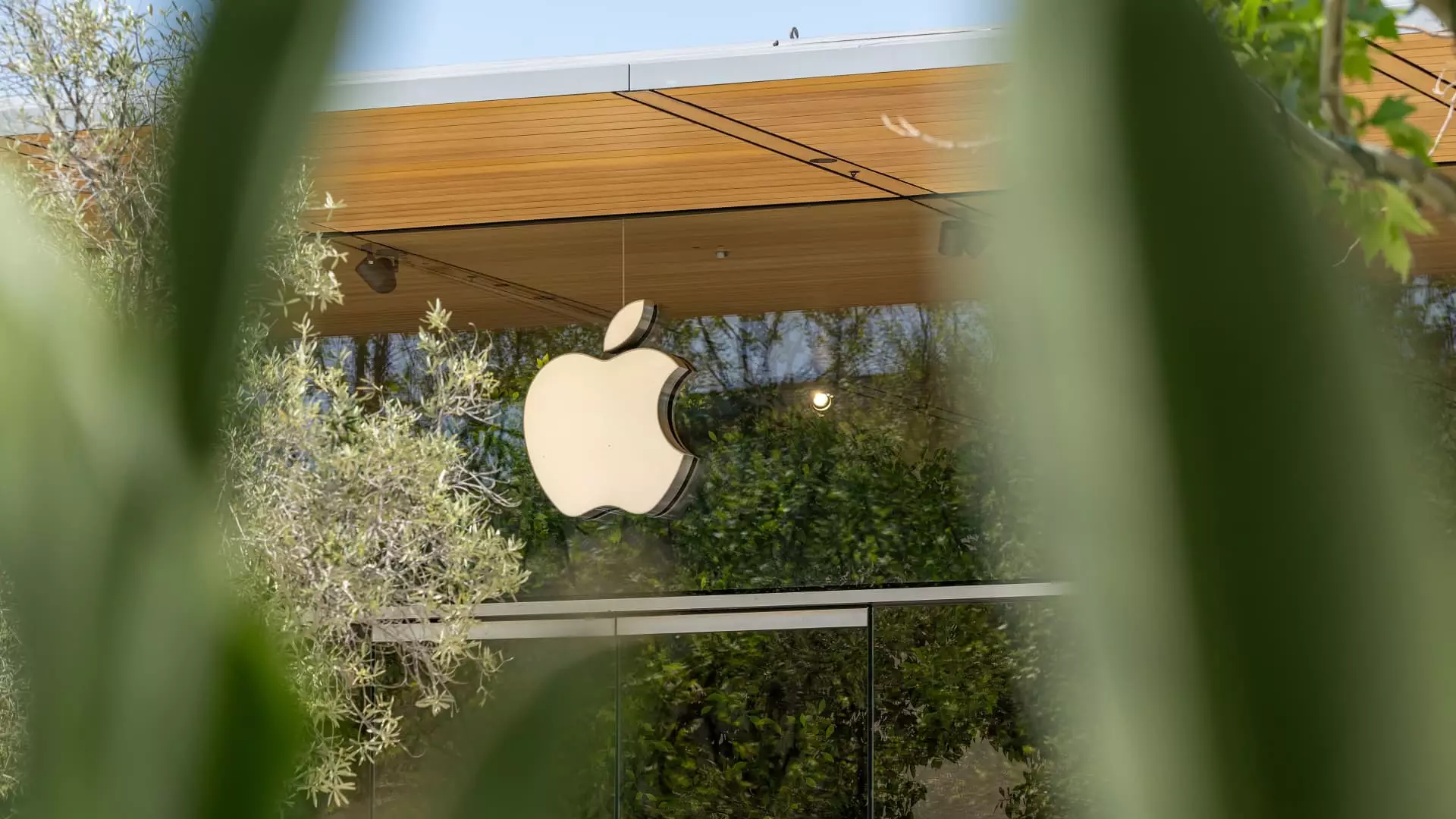The ongoing feud between Apple and Epic Games is more than just a courtroom drama; it’s a pivotal moment that could reshape the entire landscape of digital commerce. At its core, this conflict revolves around Apple’s perceived monopoly over the App Store, where it has historically controlled the rules and financial dimensions of app transactions. The latest twist in this saga has Apple requesting a pause on a recent court ruling that imposes stricter guidelines on its in-app purchase policies. This request comes after U.S. District Judge Yvonne Gonzalez Rogers found that Apple had violated existing court orders, shedding light on the company’s heavy-handed approach to app developers.
The implications of this case stretch far beyond Apple and Epic—not just for the two companies, but for developers everywhere who rely on platforms like the App Store to reach consumers. The possibility of Apple being able to roll back key changes that increase competition is alarming, suggesting that the tech giant aims to maintain an iron grip on its ecosystem.
Economic Ramifications of Apple’s Policies
Apple’s argument against the new guidelines hinges on financial repercussions. The company claims compliance would cost it “substantial sums,” potentially amounting to “hundreds of millions to billions” annually. This declaration isn’t merely about financial loss; it’s indicative of a larger pattern where corporate interests override the interests of developers and consumers alike. The implementation of these new policies has already led to significant changes within the app ecosystem. Major developers like Amazon and Spotify have adapted their platforms to sidestep Apple’s commission structure, using direct links to their websites for payment, effectively disrupting the established economic model.
It’s unsettling to see Apple resist these changes, suggesting a reluctance to embrace competitive practices that could benefit consumers. The refusal to adapt to a more open marketplace underscores a broader issue: when a company becomes so large that it views competition as harmful rather than beneficial, it erodes consumer choice—a core principle of a healthy economy.
The Misleading Game
One of the more shocking elements of this saga arises from Judge Rogers’ referral regarding Apple’s alleged misleading behaviors during the trial. The judge noted that a vice president “outright lied” about the reasons behind Apple’s external payment charges. This blatant manipulation of the court process reveals a troubling trend where a powerful corporation prioritizes profit over transparency. It’s hard to believe that a company of Apple’s stature wouldn’t prioritize ethical practices, yet here we are. Such actions do not just undermine the legal proceedings; they cast a cloud of mistrust over Apple’s entire business model.
The judge’s characterization of Apple’s tactics is alarming and reflects a systemic issue with how monopolistic forces operate within the tech industry. When corporations can bend or distort the truth without accountability, it creates an uneven playing field that crushes innovation and stifles competition.
Winners and Losers in the App Ecosystem
Amid this legal turmoil, there are clear winners and losers. On one side, you have Epic Games and other app developers who are beginning to experience newfound freedom, leveraging the court’s ruling to enhance their financial viability. However, on the other side lies Apple, which is portraying itself as a victim of competition law rather than adapting to its challenges. The irony is palpable: Apple was built on principles of innovation and disruption, yet now it stands in the way of those very ideals in its quest to maintain dominance.
Tim Sweeney, CEO of Epic Games, has expressed that this ruling pushes Apple to compete, which is precisely what a free-market economy should encourage. Sweeney’s perspective resonates strongly with anyone advocating for a fair business environment, one where companies are not afraid to coexist and innovate without being hampered by an overseer that seeks to protect its interests at the expense of others.
The Future of App Development
As this legal battle continues to unfold, one must contemplate the implications for the future of app development. With developers beginning to adopt new strategies to circumvent Apple’s restrictions, we could potentially witness a seismic shift in how apps are conceived, developed, and monetized. If more developers can successfully challenge Apple’s commission and linking policies, it may inspire a wave of new applications that prioritize consumer interests and foster competition.
The outcome of Apple’s fight against this ruling will certainly dictate not just their destiny, but also how technology companies operate in the future. The stakes could not be higher as consumers, developers, and the broader market watch closely. Ultimately, the ethos of fair competition may hang in the balance.

